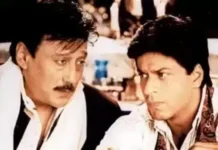
Bollywood is known for its music, drama, and romance. But despite being one of the largest film industries in the world, it still struggles with representing the queer community with respect and reality. Recently, actor Akshay Oberoi openly shared his views, saying that Bollywood doesn’t acknowledge the love it receives from the LGBTQ+ community. His statement has started a new discussion about how the film industry treats and includes queer voices.
In a bold and heartfelt interview, Akshay Oberoi expressed his disappointment in the way the queer community’s support is often ignored. He emphasized the need for more acceptance, gratitude, and meaningful queer representation in Indian films. As Pride Month is being celebrated around the world, his words have added fuel to the ongoing demand for equality, visibility, and empathy in entertainment.
Who is Akshay Oberoi?
Akshay Oberoi is a well-known Indian actor who has appeared in films like Pizza, Gurgaon, Flesh, and Inside Edge. He is known for taking unconventional roles and has built a reputation for being a brave and talented performer in the OTT space and indie cinema. Unlike many mainstream stars, Akshay chooses roles that push boundaries and break stereotypes.
In recent years, he has also become vocal about social issues, especially those concerning mental health, gender rights, and artistic freedom. Now, by speaking up for the LGBTQ+ community, Akshay has once again proved that he’s not afraid to stand on the right side of history.
Bollywood and the LGBTQ+ Community: A Complicated Relationship
Even though the queer community has always been a passionate supporter of Bollywood, the industry has done little to return the love. Songs, actors, and fashion from Indian films have long been celebrated by LGBTQ+ fans, yet Bollywood often overlooks their presence. Akshay Oberoi’s statement highlights this hypocrisy.
According to him, Bollywood enjoys the fanfare, loyalty, and creativity of queer individuals, especially in fashion, hairstyling, and dance. But when it comes to giving credit, offering roles, or even recognizing their emotional support, the industry goes silent. This lack of acknowledgment is not just hurtful—it is also a missed opportunity for progress and change.
The Power of Representation
Akshay Oberoi pointed out that representation matters—and not just token appearances or comic relief. For real change to happen, LGBTQ+ characters need to be written with depth and respect. He added that the audience is ready for it, and so are many actors. The only thing missing is the courage from filmmakers and producers to tell those stories authentically.
Films like Aligarh, Shubh Mangal Zyada Saavdhan, and Kapoor & Sons have shown that queer characters can connect with audiences deeply. But such films are still rare. Akshay believes that if mainstream Bollywood embraced queer stories with sincerity, it would not only educate society but also bring in a loyal and loving audience base that already exists.
The Culture of Silence in Bollywood
Another important point raised by Akshay Oberoi was about the culture of silence and fear in Bollywood. Many actors and filmmakers hesitate to talk openly about LGBTQ+ rights. Some fear backlash, others are worried about losing projects or brand deals. As a result, even those who support the community stay quiet.
Akshay believes this silence is dangerous. In his words, “If the people who have power won’t speak up, who will?” By remaining silent, Bollywood sends a message that queer people don’t matter, even if they are a big part of its fanbase and workforce. This silence must end, and more people in the industry need to take a stand, just like Akshay has done.
The Way Forward: What Bollywood Can Do
To fix the issue, Bollywood needs to be more inclusive, respectful, and proactive. Akshay Oberoi suggests several ways the industry can improve:
- Create real queer characters: Not just caricatures or sidekicks, but leads with emotions, flaws, and dreams.
- Hire LGBTQ+ actors and creators: Give opportunities to those who live these experiences, so the stories are authentic.
- Acknowledge queer fans: Show appreciation to the community that has always celebrated Bollywood.
- Speak up on social issues: Use fame and influence to support human rights, especially during Pride Month and beyond.
These steps can help build a better, more just industry—one where everyone feels seen and valued.
A Personal Statement with Universal Impact
Akshay Oberoi’s statement is personal, but it has struck a chord across India. Many fans, especially from the queer community, are thanking him for saying what needed to be said. Social media is flooded with appreciation for the actor’s courage and clarity. Influencers and film critics have also joined the conversation, calling for more voices like his in the industry.
By using his platform to speak out, Akshay has become a rare ally in Bollywood, someone who is not afraid to call out injustice—even when it happens quietly. His message is not just for actors, but for all creative professionals in India. It’s a reminder that art must reflect real life, and real life includes people of all genders, sexualities, and identities.
India’s Changing Queer Landscape
The LGBTQ+ landscape in India has changed rapidly since the decriminalization of Section 377 in 2018. Today, people are more open about their identities. Pride parades, queer literature, and digital platforms have created safe spaces for expression. However, popular culture has not fully caught up.
While web series and indie films are slowly making progress, Bollywood remains largely outdated when it comes to LGBTQ+ themes. Akshay’s call for awareness comes at the right time—when society is changing, and the film industry needs to evolve with it.
The Importance of Allies
Being an ally means more than just saying the right things. It means using your position to support marginalized groups and actively working to change the system. Akshay Oberoi is doing just that. His voice can inspire others in the industry to look within and ask, “What are we doing to make things better?”
As more actors, directors, and producers speak up, the hope is that Bollywood will move from tokenism to true representation. The queer community doesn’t want charity—it wants recognition, respect, and space. And as Akshay says, “That’s the least we can do in return for their love.”
Akshay Oberoi’s honest words have given Bollywood a much-needed wake-up call. It is no longer acceptable to benefit from the queer community’s creativity and love while ignoring their existence. With more people like Akshay in the spotlight, the future of inclusive Indian cinema looks brighter.
It’s time Bollywood says thank you to the community that has supported it through decades. More importantly, it’s time it makes space for queer voices, both in front of and behind the camera. The journey towards equality in cinema is long, but with allies like Akshay Oberoi, the path is finally becoming visible.


































